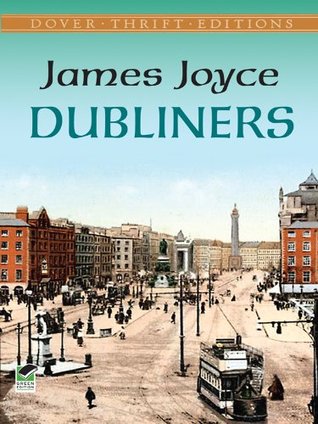More on this book
Community
Kindle Notes & Highlights
Nobody could find the nutcrackers and Joe was nearly getting cross over it and asked how did they expect Maria to crack nuts without a nutcracker.
· Flag
Best · Flag
James
He had an odd autobiographical habit which led him to compose in his mind from time to time a short sentence about himself containing a subject in the third person and a predicate in the past tense.
He allowed himself to think that in certain circumstances he would rob his bank but, as these circumstances never arose, his life rolled out evenly—an adventureless tale.
Love between man and man is impossible because there must not be sexual intercourse and friendship between man and woman is impossible because there must be sexual intercourse.
On the lonely road which leads from the Parkgate to Chapelizod he slackened his pace. His stick struck the ground less emphatically and his breath, issuing irregularly, almost with a sighing sound, condensed in the wintry air. When he reached his house he went up at once to his bedroom and, taking the paper from his pocket, read the paragraph again by the failing light of the window. He read it not aloud, but moving his lips as a priest does when he reads the prayers Secreto. This was the paragraph: DEATH OF A LADY AT SYDNEY PARADE
The working-man is not going to drag the honour of Dublin in the mud to please a German monarch.”
“Don’t you know they want to present an address of welcome to Edward Rex if he comes here next year? What do we want kowtowing to a foreign king?”
“Is that the way you chaps canvass,” said Mr. Lyons, “and Crofton and I out in the cold and rain looking for votes?” “Why, blast your soul,” said Mr. Henchy, “I’d get more votes in five minutes than you two’d get in a week.”
When the Irish Revival began to be appreciable Mrs. Kearney determined to take advantage of her daughter’s name and brought an Irish teacher to the house. Kathleen and her sister sent Irish picture postcards to their friends and these friends sent back other Irish picture postcards.
said good-bye to one another in Irish.
She respected her husband in the same way as she respected the General Post Office, as something large, secure and fixed; and though she knew the small number of his talents she appreciated his abstract value as a male.
One of these gentlemen was Mr. O’Madden Burke, who had found out the room by instinct. He was a suave, elderly man who balanced his imposing body, when at rest, upon a large silk umbrella. His magniloquent western name was the moral umbrella upon which he balanced the fine problem of his finances.
They thought they had only a girl to deal with and that, therefore, they could ride roughshod over her. But she would show them their mistake. They wouldn’t have dared to have treated her like that if she had been a man. But she would see that her daughter got her rights: she wouldn’t be fooled. If they didn’t pay her to the last farthing she would make Dublin ring. Of course she was sorry for the sake of the artistes. But what else could she do?
a minute piece of the tongue seemed to have been bitten off.
She accepted his frequent intemperance as part of the climate,
and he had recently become secretary to the City Coroner. His new office made him professionally interested in Mr. Kernan’s case.
But, he told his hearers, the text had seemed to him specially adapted for the guidance of those whose lot it was to lead the life of the world and who yet wished to lead that life not in the manner of worldlings. It was a text for business men and professional men.
They would think that he was airing his superior education. He would fail with them just as he had failed with the girl in the pantry. He had taken up a wrong tone. His whole speech was a mistake from first to last, an utter failure.
To follow the voice, without looking at the singer’s face, was to feel and share the excitement of swift and secure flight.


